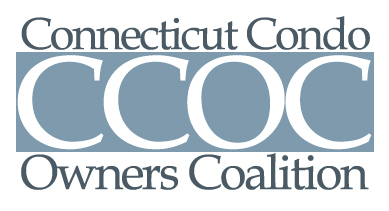Ask Gail: Dueling Proxies
Question: at our recent annual meeting, we had 2 unit owners who each had a proxy from two different owners who could not attend the meeting. But the board had proxies from the very same owners who could not attend. Our property manager said all proxies had to be discarded/held and would not be used in the vote count. The proxies were delivered to our group [voting against the budget] so I know that ours were the right ones. I don’t think the property manager was correct and wanted to skew the voting. He said the signatures looked different. We did win and budget was defeated, but who can we complaint to about our manager.
Response:
- First, keep focus on what your group wanted to achieve – defeat the budget and you won!
- Second, the community association manager was correct in his decision. Erring on the side of ethical conduct; his decision was for the best interest of the community since there would be no way to prove or disprove which signature was fraudulent.
Whether you want to get back to the unit owners who signed their proxy is your choice; but it possibly could come down to a unit owner forgetting they sent the proxy to the manager and then did another one for your group. We all write our name that although similar may change if we are in a hurry – hence without authentication from a handwriting expert what would this achieve?






I disagree with Gail Egan’s response on this one. If a unit owner challenges a proxy vote, it seems to me the most appropriate thing to do is to put the ballot count on hold until the matter is resolved.
In this case, it seems to me it would have been reasonable for the parties with the proxies to ask the unit owners if possible which proxy vote is most current. If there was mishandling, that, too, should be addressed properly.
Clear communication and transparency is imperative.
I have seen boards manipulate proxy voting on numerous occasions. There ought to be a condo law that addresses disputes regarding condo elections, among other disputes.
I urge all to write to their legislators and ask them to vote in FAVOR of 2014 condo bills presently being considered…
SB494:
http://www.cga.ct.gov/asp/cgabillstatus/cgabillstatus.asp?selBillType=Bill&bill_num=494&which_year=2014&SUBMIT1.x=0&SUBMIT1.y=0&SUBMIT1=Normal
HB5590:
http://www.cga.ct.gov/asp/cgabillstatus/cgabillstatus.asp?selBillType=Bill&bill_num=5590&which_year=2014&SUBMIT1.x=0&SUBMIT1.y=0&SUBMIT1=Normal
I wish CCOC would be more proactive in drumming up member support to get these condo bills passed.
My experience with proxies is when we get the signature from the unit owner, we have them write the date and time and initial it. That will supersede the proxy that has no date and time.
However, I would go back to the unit owner and let them know because they have a year to support what their true vote is.
And, I am so on the same page as Concerned CT Unit Owner.
First, let’s clarify proxy vs. ballot.
Unless prohibited or limited by the declaration or bylaws,
1.unit owners may vote at a meeting in person, by a proxy or
2.when a vote is conducted without a meeting, by electronic or paper ballot [Ref. CIOA Chapter 828 Sec. 47-252. Voting. Proxies. Ballots]
Second, the community association manager challenged the 2 proxies not unit owners. The proxies in question did not have any effect on the outcome of the vote to reject the budget. The unit owner group resoundingly defeated the budget by 76%. The 2 votes from these proxies would not have changed the outcome of the vote to defeat the budget.
This unit owner group worked diligently, became organized, conducted themselves in a professional manner: the end result being they accomplished their goal – the budget was rejected by 76% of the unit owners.
The unit owners group or the association has the option to investigate the duplicate proxies to determine, if possible, which of the two proxies were fraudulent by going back to those proxy” unit owners after the meeting. However, as stated previously, the 2 votes in this case would not have altered the rejection vote.
You stated that you “have seen boards manipulate proxy voting on numerous occasions. While that may be true, there are condo associations that run very smoothly with no issue regarding the lack of transparency. However, for those common interest communities where unit owners believe issues are not being resolved, it means working to effect change – not just complaining.
In this particular instance it is very clear that unit owners organized as a group, worked together, presented the issues based on fact; then, as concerned unit owners procured proxies for owners unable to attend. It meant preparation, work, and effort over a period of several months.
Last, you urged all to write to their legislators and ask them to vote in FAVOR of 2014 condo bills presently being considered citing SB 494.
Senate Bill 494 is AN ACT CONCERNING GUARDIANS AD LITEM AND ATTORNEYS FOR MINOR CHILDREN IN FAMILY RELATIONS MATTERS.
I am uncertain but did you mean SB457 AN ACT CONCERNING REVISIONS TO THE COMMON INTEREST OWNERSHIP ACT.
Gail, Thanks for the correction regarding the condo bill. I cited the incorrect number. It should have read as you stated in your reply: SB457 AN ACT CONCERNING REVISIONS TO THE COMMON INTEREST OWNERSHIP ACT.
You mention for those common interest communities where unit owners believe issues are not being resolved, it means working to effect change – not just complaining.
The founding mission of CCOC included having unit owners statewide who complained to the attorney general’s office working together to effectuate improvements in CT condo laws and to establish an office of condominium ombudsman to better protect the interests of condo owners.
As I see it, members relied on CCOC to help make positive change. Now members do not receive the guidance members were once given. Unfortunately, the current CCOC leadership have strayed from the founding mission of the organization without consulting the membership on proposed changes to the organization structure and its current mission. We see no committees of CCOC members, but rather heavy focus on condo industry professionals who may have a totally different perspective than unit owners who face hardships from rogue boards. CCOC leadership should hold regional meetings and encourage unit owner committees.
I agree that proxies should be examined and determined to be valid.
A proxy must be signed, indicate the unit and unit owner and be dated.
A proxy can be revoked at any time. Signing a new proxy revokes the older one. Consequently, the most recent valid proxy should be the one honored.
I agree that, in this instance, the error was harmless. I would go back to the unit owners and let them know what happened. If one of the proxies was indeed the forgery, and the unit owners approve, I would let all unit owners and the board know what happened.
It’s a great question, but, I agree with Gail. As a Member of The Board of Directors at my association, we ask our residents to understand The Board Members are volunteers; sacrificing personal time for the betterment of the entire complex. Transparency, consistency and clear communication are terrific and expected. However, allowing all attending owners to voice his/her opinions on authenticating proxies is absurd, and especially ineffective when a vote is on the agenda.
The outcome was in your favor, assuming a quorum was met without the proxies.
We don’t need a micro-law for this. Sign, initial, date and double check — what a great way to verify. Doesn’t hurt to check with the owner either.
It is not a law; it is just what we do from our experience of board of directors and property managers getting involved in skewing the outcome. That’s all.